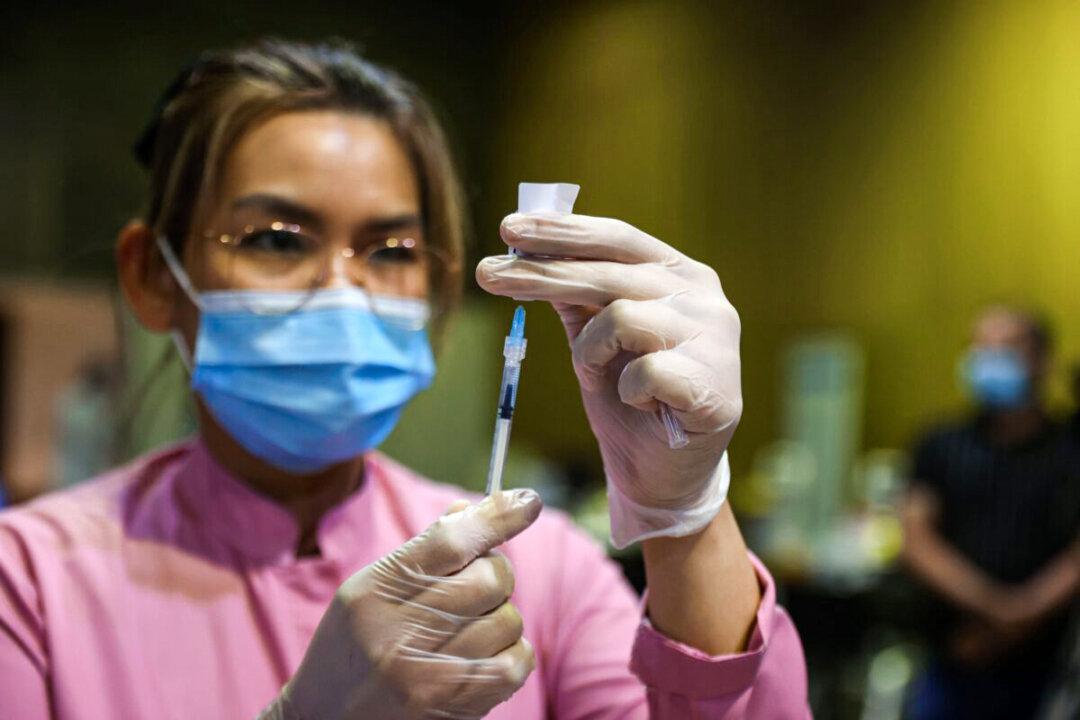A booster shot of Pfizer’s COVID-19 vaccine provides strong protection, at least initially, against COVID-19 hospitalization, although the effect against the Omicron virus variant is lower than that seen when the Delta strain was prevalent, according to a new study.
Researchers in Qatar estimated that the booster was 76.5 percent effective against severe, critical, or fatal COVID-19 caused by the Omicron variant as compared to the protection offered by the two-dose primary series.





